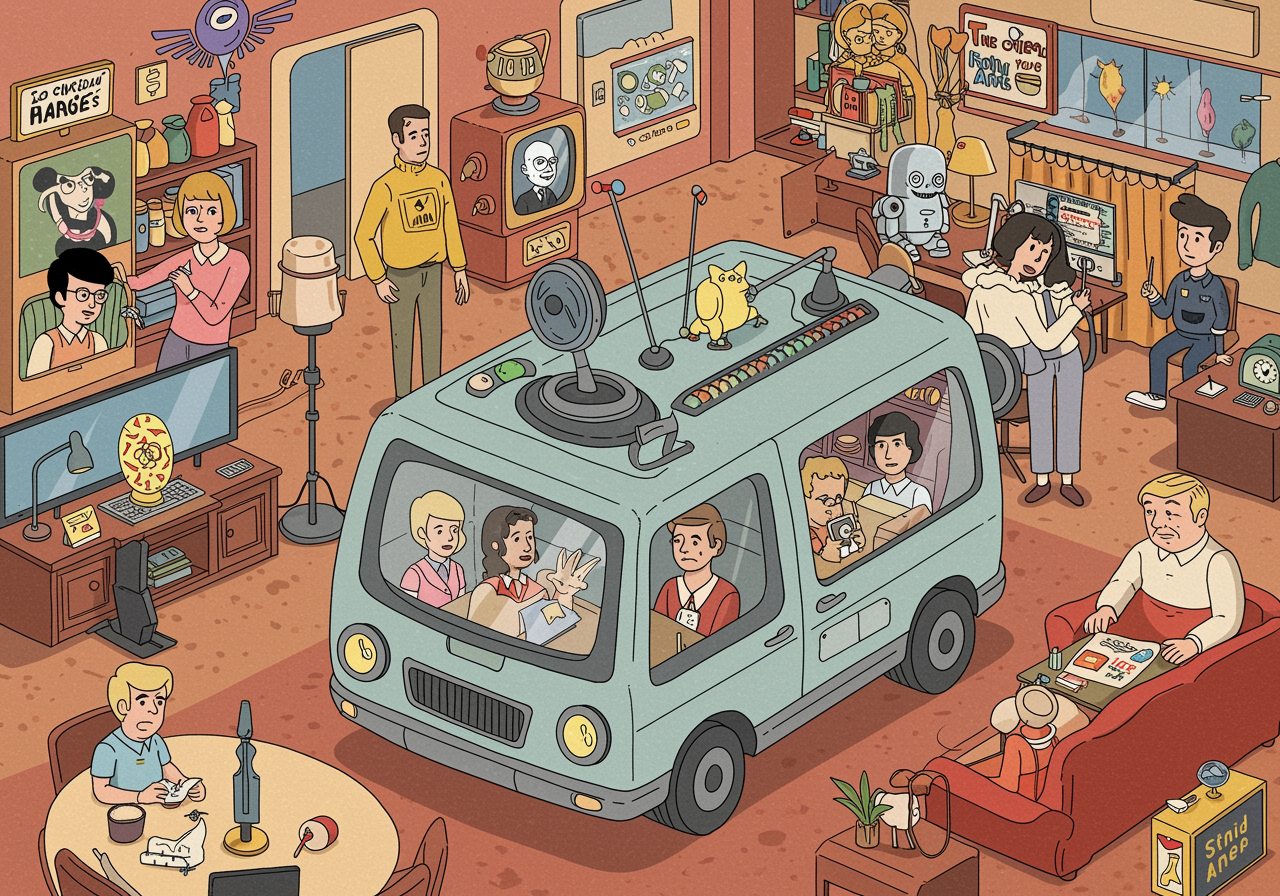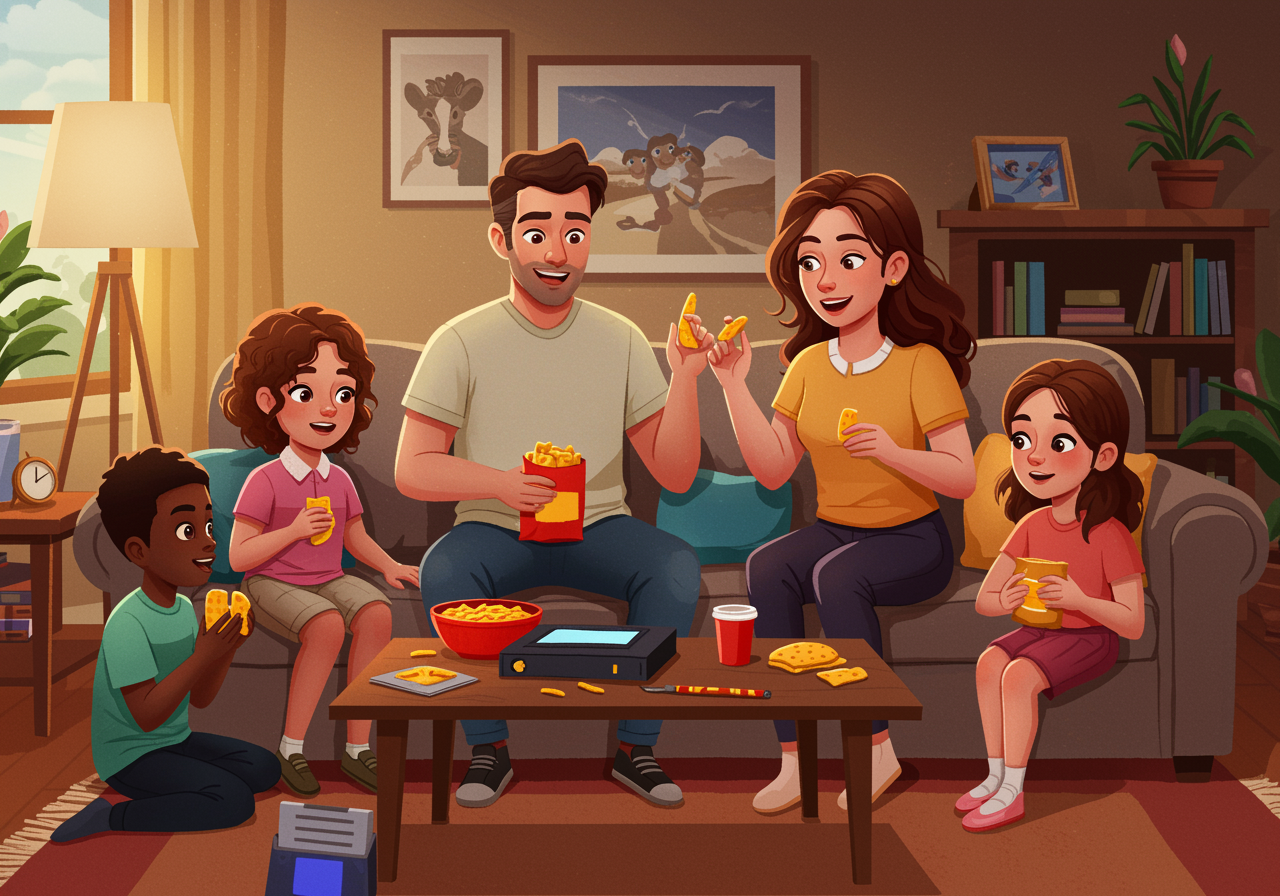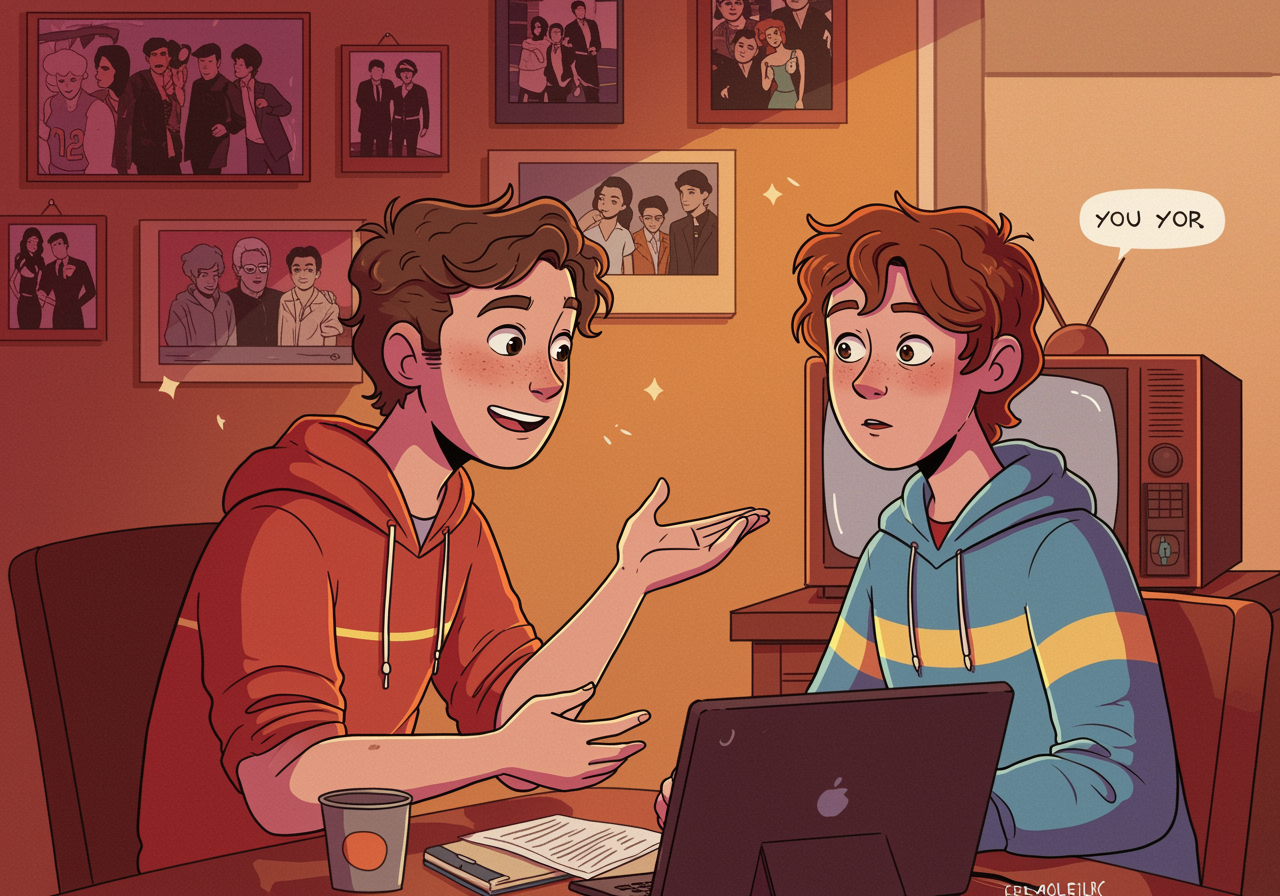The TV Time Machine: Why Some Shows Live Forever

Discover the secret sauce that makes certain shows unforgettable
Ever wonder why you still quote The Office or why your parents love Friends? Let’s crack the code of TV classics together!
Overview
Think about it – why can you still quote SpongeBob episodes from years ago, but you've totally forgotten that show you binged last month? Understanding what makes TV shows stick around isn't just about entertainment – it's about how stories shape our culture and connect us across generations. When kids understand the 'ingredients' of lasting stories, they become smarter consumers of media and better storytellers themselves. Plus, talking about favorite shows is one of the easiest ways for families to bond and share what matters to them!

Understand in 30 Seconds
Get up to speed quickly
- Emotional Connection Wins: Shows that make us laugh, cry, or feel understood create lasting memories. When a character feels like a real friend, we don't want to say goodbye.
- Universal Stories Travel Through Time: The best shows tackle themes everyone can relate to – friendship, growing up, family drama, or chasing dreams. These never go out of style.
- Cultural Impact Creates Legends: Some shows change how we talk, think, or see the world. When a show influences society, it earns a permanent spot in our collective memory.
- Quality Storytelling Lasts: Great characters, clever writing, and satisfying plot twists keep us coming back. Shows with depth reward viewers who pay attention.
Real Life Scenario
Situations you can relate to
Imagine your music playlist. You probably have songs you've heard a thousand times but still love, right? Maybe it's because they remind you of a special moment, or the lyrics just hit different. Now think about a song that was super popular for like two weeks and then vanished. What's the difference? The lasting songs usually tell stories we connect with, have melodies that stick, or remind us of important times in our lives. TV shows work the same way! Avatar: The Last Airbender deals with friendship, responsibility, and growing up – themes that matter whether you're 12 or 40. But that reality show from 2019? It was just drama without deeper meaning. Which one do you think people will still be talking about in 20 years?

Role Play
Spark a conversation with “what if” scenarios
What if you were a TV network executive deciding which shows to keep making?
- Role play: Take turns pitching your favorite show and explain why it deserves to stay on the air. Use arguments about characters, themes, and impact – not just 'because it's cool!'
What if you had to explain your favorite show to someone from 50 years ago?
- Role play: Practice describing why the show would still make sense and be interesting to someone from a completely different time period.
What if you could only save three TV shows for future generations to watch?
- Role play: Debate which shows deserve to be preserved in a 'TV time capsule' and defend your choices based on their lasting value.
FAQs
Frequently asked questions people want to know
Why do shows like Friends still feel relevant today?
Friends focuses on universal experiences like friendship, dating, and figuring out adulthood. These themes never get old, even if the fashion and technology change!
Can a show become a classic even if it wasn't popular when it first aired?
Absolutely! Some shows find their audience later through streaming or word-of-mouth. The Office actually struggled in ratings at first but became huge later.
Do classic shows have to be old?
Not necessarily! A show can have 'classic' qualities right from the start if it has great storytelling, memorable characters, and universal themes that resonate with people.
Examples in the Wild
See how this works day to day
- The Office has been the most-streamed show on Netflix for multiple years, proving its lasting appeal even years after ending (Nielsen Media Research)
- Avatar: The Last Airbender experienced a massive resurgence when it hit Netflix in 2020, introducing the show to a whole new generation (Netflix viewing data)
- Friends continues to generate millions in revenue from syndication deals and merchandise, decades after its finale (Entertainment industry reports)
- Disney+ saw huge subscriber growth partly due to classic content like old Disney shows and Marvel series finding new audiences (Disney financial reports)
In Summary
What you should know before you start
- Classic TV shows create emotional connections that make characters feel like real friends or family
- Universal themes like friendship, growing up, and overcoming challenges never go out of style
- Shows that influence how we talk, think, or see the world earn legendary status
- Quality storytelling with great characters and smart writing rewards viewers and keeps them coming back
Pro-tip for Parents
You got this!
If your teen dismisses older shows as 'outdated,' try watching together and pointing out the timeless themes. Ask questions like 'Does this remind you of anything happening in your life?' or 'Why do you think people still love this character?' This helps them see past surface differences and appreciate good storytelling. Remember, the goal isn't to make them love your favorites, but to help them think critically about what makes stories powerful.

Keep an Eye Out For
Find these examples in everyday life
- When streaming platforms announce their 'most-watched' lists – discuss what shows made it and why
- Notice when older shows trend on social media – ask your teen what sparked the renewed interest
- Pay attention to show revivals or reboots – great opportunities to compare original vs. new versions
Explore Beyond
Look up these related research topics
- How social media changes the way we discover and talk about TV shows
- The psychology behind why we get attached to fictional characters
- How different cultures create their own classic shows and what that tells us about values